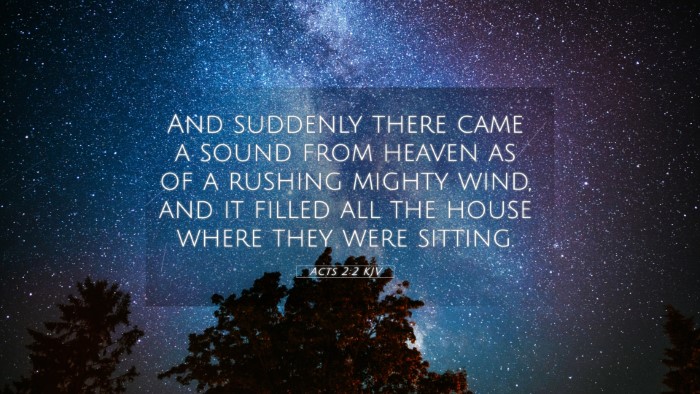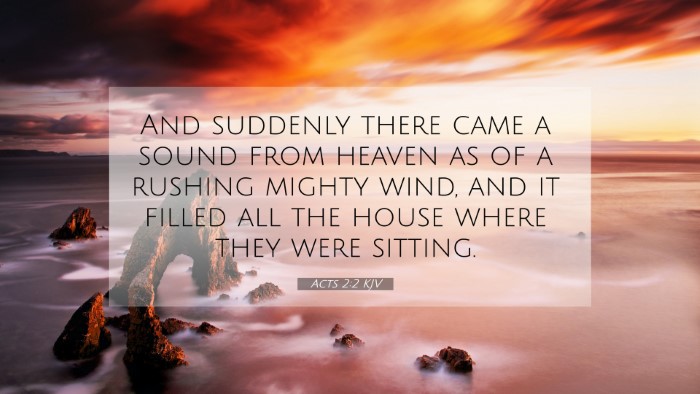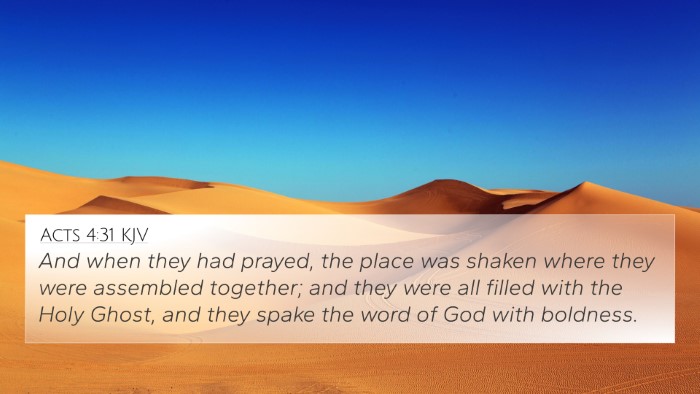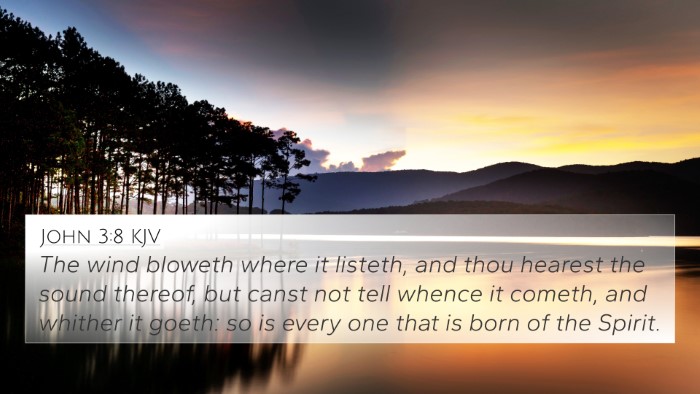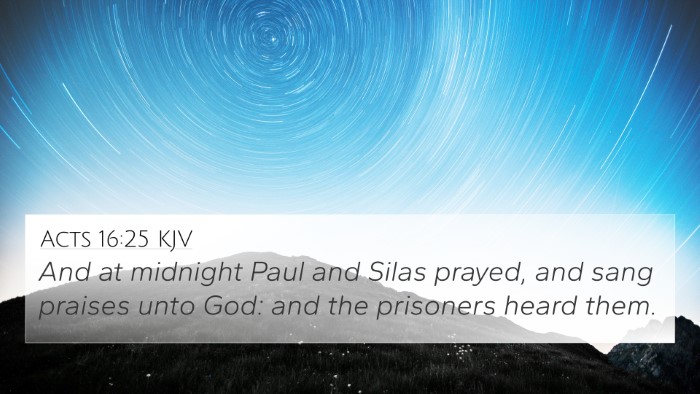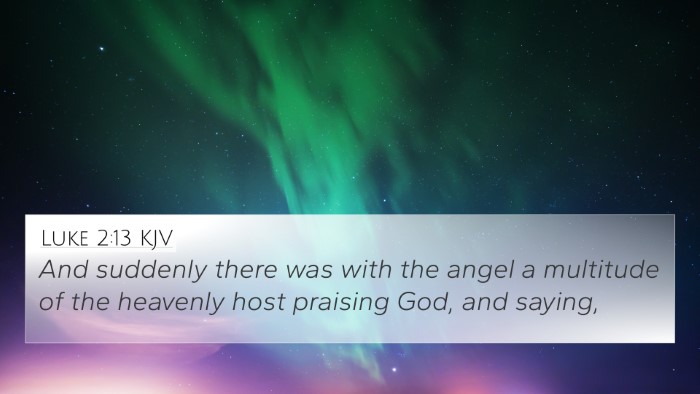Understanding Acts 2:2
Acts 2:2 states: "And suddenly there came a sound from heaven as of a rushing mighty wind, and it filled all the house where they were sitting." This verse is pivotal in the narrative of the Day of Pentecost, highlighting the dramatic moment of the Holy Spirit’s arrival.
Verse Meaning and Interpretations
The profound implications of Acts 2:2 can be unpacked through various public domain commentaries:
-
Matthew Henry's Commentary:
Henry emphasizes the suddenness of the Spirit's arrival and likens it to the unpredictable and powerful nature of wind. He suggests that the sound was not merely a noise but a divine signal of God's presence amongst His people. The filling of the house symbolizes the beginning of a new era, where the Holy Spirit empowers and equips believers for mission.
-
Albert Barnes' Notes:
Barnes highlights how the sound from heaven signifies the divine origin of this event. He draws connections to Old Testament manifestations of God's presence, reinforcing that this moment is a fulfillment of prophetic expectations. He also notes the communal aspect, indicating that all those present experienced this outpouring, connecting it to the importance of unity in prayer.
-
Adam Clarke's Commentary:
Clarke provides a detailed analysis of the term 'rushing mighty wind', indicating that the sound was likely both alarming and awe-inspiring. He relates this phenomenon to other biblical instances where God's voice or presence manifests in powerful ways. Clarke also alludes to the effects of the Holy Spirit, which empowers the church beyond mere sounds to evident acts of faith and witness.
Cross-References and Thematic Connections
To explore the connections between Bible verses related to Acts 2:2, we can look at several references:
- Genesis 1:2: The Spirit of God moving upon the waters indicates the Spirit's eternal presence in creation.
- Exodus 19:16-19: God's presence manifested as sound and smoke on Mount Sinai, paralleling the theophany of Pentecost.
- Isaiah 66:15: Describes the Lord coming with fire; the imagery of powerful manifestations of God resonates here.
- John 20:22: Jesus breathing on His disciples and saying, “Receive the Holy Spirit” links the beginning of the Spirit's work in believers.
- Acts 1:8: Jesus promises that they will receive power when the Holy Spirit comes, setting the stage for the outpouring.
- Romans 8:26: The Spirit helps us in our weakness, indicating the ongoing role of the Holy Spirit in the lives of believers.
- 1 Corinthians 14:1: Illustrates the desire for spiritual gifts, emphasized at Pentecost when the Spirit equips the church for ministry.
- Joel 2:28-29: A prophetic word about God pouring out His Spirit in the Last Days, which Peter later quotes at Pentecost.
- Ephesians 4:30: Stresses the importance of not grieving the Holy Spirit, which emphasizes the Spirit's active role in believers’ lives post-Pentecost.
- Hebrews 12:29: Describes God as a consuming fire, linking the powerful presence of God with the events described in Acts 2.
Why Cross-Referencing is Important
Engaging in Bible verse cross-referencing can enrich our understanding of scriptural texts. Tools for Bible cross-referencing such as concordances or cross-reference guides allow believers to find thematic connections and deepen their study. By examining these dimensions, we can uncover insights about God's nature and His dealings with humanity.
Practical Application of Cross-Referencing
When approaching Bible study, consider applying the following methods:
- Use a Bible Concordance: Identifying key terms can lead to relevant scriptures.
- Engage in Comparative Bible Verse Analysis: Assess similarities and differences between verses across both Testaments.
- Mark Connections: Create symbols or markings in your Bible to denote thematic similarities throughout the text.
- Utilize Bible Reference Resources: Seek out study materials that focus on cross-references such as Bible commentaries or thematic study Bibles.
Conclusion
Acts 2:2 serves as a critical juncture in the Christian faith, marking the birth of the early Church through the powerful arrival of the Holy Spirit. By utilizing cross-referencing biblical texts and delving into the rich tapestry of Scripture, believers can grasp not only the immediate significance of this verse but also its profound implications for faith and practice today.
As you explore the Bible, consider how to facilitate inter-biblical dialogue through the connections between verses. This practice can illuminate God's overarching narrative and enhance your understanding of divine principles throughout Scripture.

